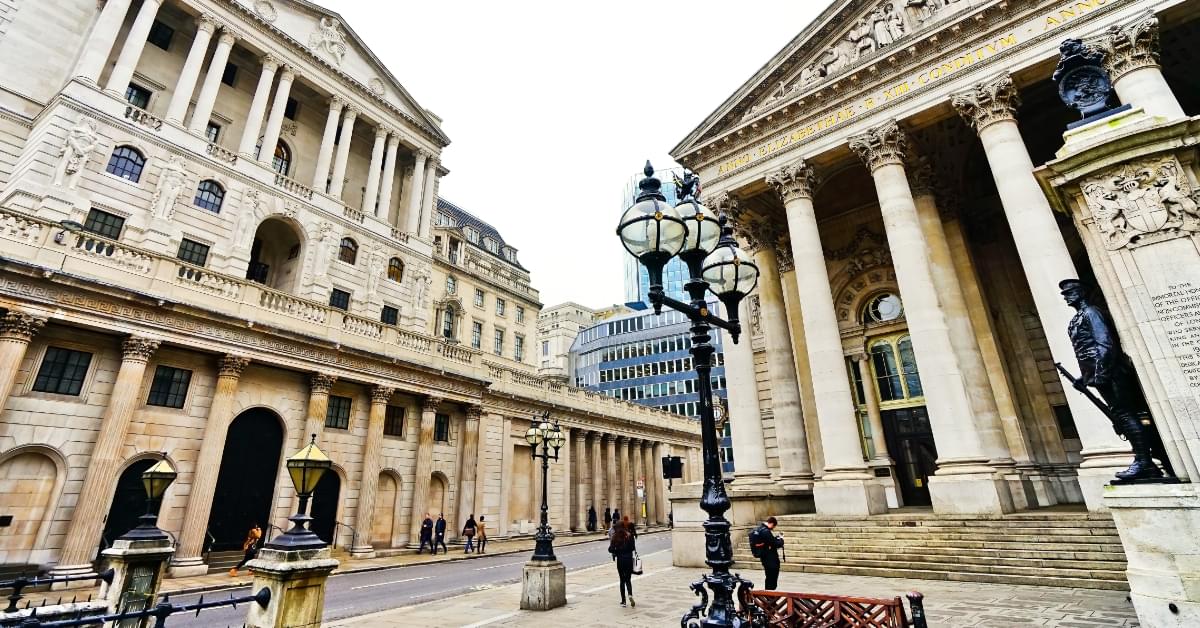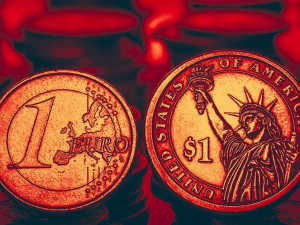
The City of London, also known as the Square Mile, is still one of the leading financial capitals of the world today. While Wall Street is much bigger in terms of stock trading, few people know that the City is still the biggest hub for currency trading on the globe.
In fact, London accounts for 38% of volume in global foreign exchange, much ahead of Wall Street, which is responsible for 19% of global trading.
We look in detail at why the Square Mile has held this leading position throughout history and which factors drive its success.

Historical roots
As you may already know, the City of London has a long history dating back to the founding of Londinium by the Romans in the third century after they started their conquest of the isle they called ‘Britannia’. Still today, you can find Roman excavations in the City — when Bloomberg built their new London headquarters, Roman relics and an ancient Mithras temple were discovered, which are now open to the public in a museum, the London Mithraeum.
A number of centuries later, with the rise of commerce, London became the hub of trading in Britain and consequently of finance. The Magna Carta, issued by King John of England in 1215, is one of the earliest and most significant legal documents that ensured freedom of speech and liberty. The document included the freedoms of the City of London, which are still valid today as ancient rights.
Over the centuries, those freedoms guaranteed that the City developed and remained the central part of trade and finance in the United Kingdom and also with growing globalisation around the world.
City of London Corporation
The City of London Corporation, now called ‘Corporation of London’, as the governance of the Square Mile is called, still has a unique function in the world.
It is not only the local authority. It also functions as the police authority and is the governing body of the City, thus filling a role which is much bigger than any other ordinary local authority.
This system of governance, together with the ancient freedoms of the City, has gone a long way and has so been a guarantor of the City’s success and financial reputation for centuries.
Bank of England
The Bank of England was established as one of the world's first ‘central’ banks, as a public bank to help fund the war effort against France in 1694. It was initially a private bank with private shareholders, including royalty as well as private individuals.
These days, the Bank of England is not private anymore: it has been nationalised after the second world war and is one of the most influential and powerful financial bodies in London, also underpinning stability in the UK financial market for centuries.

Contemporary factors
Apart from the historical roots and centuries-old reputation of the City of London Corporation and the Bank of England, there are other more contemporary factors which are specifically supporting the role of London as the leading FX trading hub:
Convenient time zone
Again, out of a historical event, London has become the centre of the world — timezone-wise.
In 1884, the village of Greenwich in London was chosen as the reference point for all time on Earth due to its maritime connection — what we call Greenwich Mean Time (GMT).
As a result, time zones were set up, with GMT serving as a standard reference point globally. Since other financial hubs in Asia and the East Coast of the US are situated on both sides of the ‘clock’, this allows traders in London to trade with the East and the West during daylight hours.
Infrastructure and financial system
London has a great financial infrastructure and system situated especially around the settlement of trades. Consequently, nearly every global financial institution with a name has an office and a trading firm in the City.
The clearing of a significant amount of trades in derivatives and Forex globally by the London Clearing House (LCH Group), Lloyd's of London is one of the leading venues for trade insurance, and the London Metal Exchange is the premiere venue for trading in some of the most important industrial metals and precious metals. The London Stock Exchange, while having lost out to other stock exchanges in the last years regarding international listings, still harbours many international share listings in the form of depositary receipts, both American (ADRs) and global (GDRs).
As a result, a significant share of foreign exchange transactions has to occur in London by default, as the financial infrastructure for settlement and trading in global markets is based in the City.
Talent pool and English language
Despite Brexit, the City still harbours a deep and diverse talent pool of financial professionals. In fact, financial services hiring is still booming, and the skyline of the City is littered with the construction of new office buildings.
As a result, Brexit seems to have not significantly impacted London's dominance in currency trading, although the share in trading has declined slightly to 38% from 43% in 2019.
Not surprisingly, other European cities have struggled to poach financial professionals from London — simply because of the language barrier. The English language is still the premiere language in finance, and Frankfurt and Paris are still much more of a local scene than London.
To sum up: The combination of London’s well-constructed economic infrastructure, strategic location, and the City of London Corporation’s special responsibilities make the City of London the ideal global hub for currency trading. This is unlikely to change any time soon.
Are you looking to transfer currency globally? Sign up today to open your account with CurrencyTransfer and get access to live quotes from our network of FCA-authorised payment partners. Our dedicated team of FX specialists will be happy to help.
Subscribe to our newsletter to stay up to date with the market news and receive it straight to your mailbox.
G.C. Wagner
Gustav Christopher is a writer specialising in finance, tech, and sustainability. Over 15 years, he worked in banking, trading and as a FinTech entrepreneur. In addition, he enjoys playing chess, running, and tennis.



